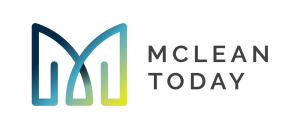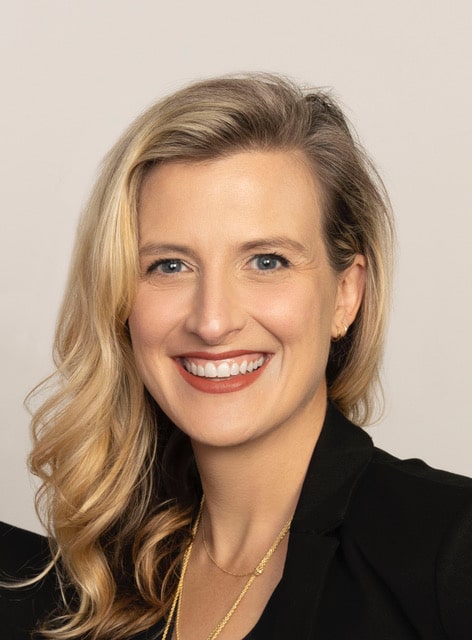Meet Courtney Brown, President of McLean’s Safe Community Coalition [SCC]. The mission of the SCC is to provide programs and resources to reduce stress, foster mental wellness, and empower our youth to thrive and make responsible choices about their health and safety. Brown has two sons at McLean High School. “The more people that care about each other and know about each other, and the more connected we are, the safer we are,” says Brown about the SCC’s role in the community.
Q. When did McLean’s Safe Community Coalition get their start and how did you get involved?
McLean’s Safe Community Coalition was founded in 1995, with a SAMHSA [Substance Abuse and Mental Health Services Administration] grant. It basically started with the “Just Say No” programs. I joined when I was the school liaison as a president of Chesterbrook Elementary. I have two sons [now] at McLean High School. It’s really important work.
Q. Working with the Safe Community Coalition, what have you learned about the McLean community of kids?
In the past 10 plus years, we’ve really realized that our problem — if it’s a substance abuse problem, it always stems from mental health. And because we are such an A-type personality area, that if our kids are going to engage in risky behavior it usually has something to do with stress or mental wellness — they’re trying to escape. When I first moved here to McLean — my husband grew up here, he went to Chesterbrook, Longfellow McLean; he was in Reston, I was in Arlington and then we got married and moved here — there were some suicides. Wilma Bowers [past Parent-Teacher-Student Association president at McLean High School] who wrote that great article about everybody put down your weapons — https://www.washingtonpost.com/lifestyle/style/in-mclean-a-crusade-to-get-people-to-back-off-in-the-parenting-arms-race/2014/03/23/9259c6a2-a552-11e3-a5fa-55f0c77bf39c_story.html — it’s not worth it. If our kids are too important, we need to stop being high-pressure. I fangirl on that article to this day because it is so important. Mental health is everything.
Q. Did your kids show any warning signs of this pressure?
When my older son was young, he was in the fourth grade and his teachers thought he was having seizures. He wasn’t. He was having panic attacks. and didn’t know it. When we finally got to the bottom, it’s a long, long story, but he would say things like, I’m not doing well in math, which means I’m never going to get into a college and I won’t get a good job. He’s in the fourth grade telling me this. And he’s smart and creative, but it’s crippling at that point. He would forget where he was when he came back [from the attacks]. We had a long journey with getting him back on track. [The stress] it wasn’t coming from us.
Q. What have been your challenges in leading the McLean Safe Community Coalition?
I took this whole thing on right out of COVID — we saw volunteerism drop off, we saw attendance drop off and people really protecting their time quite a bit. My struggle was to get people to events. The speaker events we’ve had since I’ve been here are Julia Lythcott-Hames, who wrote How to Raise an Adult, and Lynn Lyons, who is an expert on adolescent anxiety and has written a couple books — The Anxiety Audit, is her latest one. The most recent speaker was Jeff Selingo. I’ve been looking at attendance as my benchmark, trying to get people back involved. Our board has grown again, we’re starting to grow back, our attendance is growing again, people are seeing that it’s important and that they need to step up.
Q. What else are you hoping to bring to the community?
More parent education — I just talked to Robin Lady [Dranesville District School Board representative] yesterday and we’re gonna work on some transition videos for Fairfax County to use — when you transition to middle school, and then we’ll do one for the transition to high school, too. We’re looking for the next thing to do with the younger kids.
Q. Will you do anything in regards to the fentanyl poisoning that has arrived in our public schools?
Absolutely, we’ve actually already started. We are trying very hard to de-stigmatize. Everybody says, “it’s not my kid. My kid doesn’t do that.” I will tell you, I was at McLean High School, there’s an impressive group of kids. I sat down with them and they [shared this] “There are more kids doing it than you think. And they’re not the kids you think are doing it.” We have done one training, free training, working with Kelly Rankin who is our substance abuse prevention person for both Langley and McLean. We went to Langley and McLean and held a lunch and we trained [Narcan] to over 80 teachers and coaches both in both schools. My next step is I’m trying to get some grant money to buy Narcan for teachers, especially coaches, because they go to different schools and they don’t know where it is. We tell them where it is at their school. I’m trying to get grant money to get it in teachers hands. We’ve done one free training at McLean Community Center. We’re gonna have two in the fall. The Rabbi has asked us to do it for them at Temple Rodef Shalom and we’re gonna do that. Basically we are building a whole program around it. It’s a little bit like playing Russian roulette and I don’t think that people know that because when they mix these batches of fentanyl, if you ever made brownies or something and you didn’t kind of get the batter all the way mixed, you get a clump of flour. That’s why some kids get nothing or get a little high. but then that one kid got the flour and the batter and that’s what does it. It just takes…
Q. What else is unique to McLean that you’ve seen that you want to tackle in your organization?
We have so many smart parents here, but everybody’s working — it goes by so quickly, we don’t pay attention to the changes that are happening in our kid. Whereas, even me, when my kids were little, I was reading every book about child rearing. And as you get busier, how much time do you have between working, running your kids to activities and all the rest of that? So as much as we can do to educate parents — and society now, we have super computers in our hands. How do you manage that? When is the appropriate age for a kid to have a cell phone? With social media, they’re tracked, they’re surveyed to death. They’re absolutely like put in a petri dish and then they are told, By the way, everything can kill you. Everything’s dangerous and can probably kill you. I feel for these kids, it’s just an unprecedented time to be alive for them. It’s not easy. I don’t know that I would have been as resilient as these kids are. We need to have a lot of empathy around what they’re doing.

